Cons of mulching grass are:
- You can suffocate your lawn.
- More lawn mower maintenance.
- It may take longer to mulch than to bag.
- It is a messy process.
- You can ruin the moisture in the soil.
- The spread of weeds.
- You will need a mulching mower.
- Using fertilizer can be risky.
Tired of manually bagging grass clippings after every mowing session? Thinking of just leaving clippings on the lawn as mulch?
Before you do that, you need to hear me out! A lot of people rave about how great grass mulching is without telling the possible side effects and dangers.
I’ll be the first to tell you that mulching grass isn’t as innocent as it seems. I’ve run into some obstacles when mulching my grass, and I am here to share my experiences with you! Let’s take a look!
Contents
8 Disadvantages Of Mulching Grass Clippings
You Can Suffocate Your Lawn
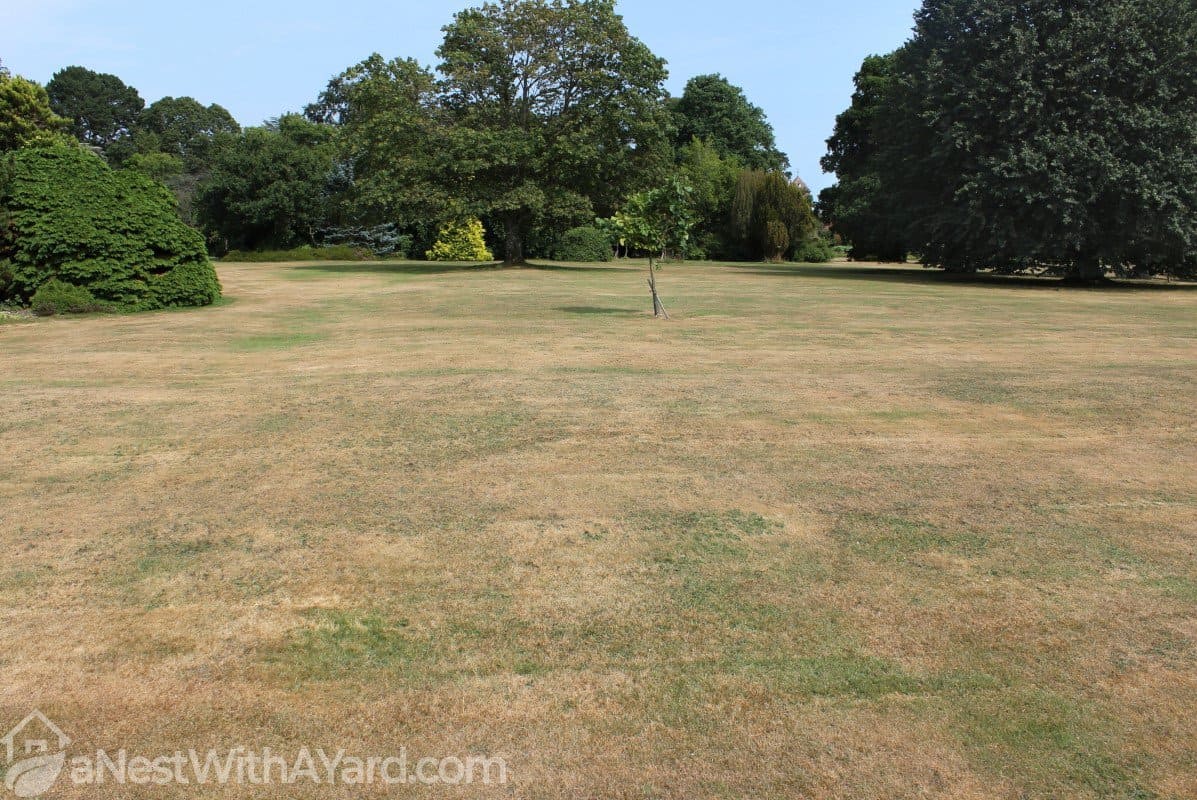
The most important thing in grass mulching is spreading grass clippings thinly and evenly across the turf. If you lay lawn clippings too thick, you will suffocate your lawn! Mulch will block out the sun, air, and rain. Without these elements, your grass will slowly die.
A great way to tell if you are burying your lawn alive is if you can no longer see grass blades. I like to leave only ¼ inch of fresh grass clippings on my lawn. If you spread mulch any thicker, it won’t break down quickly enough and it will start to grow mold.
More Lawn Mower Maintenance
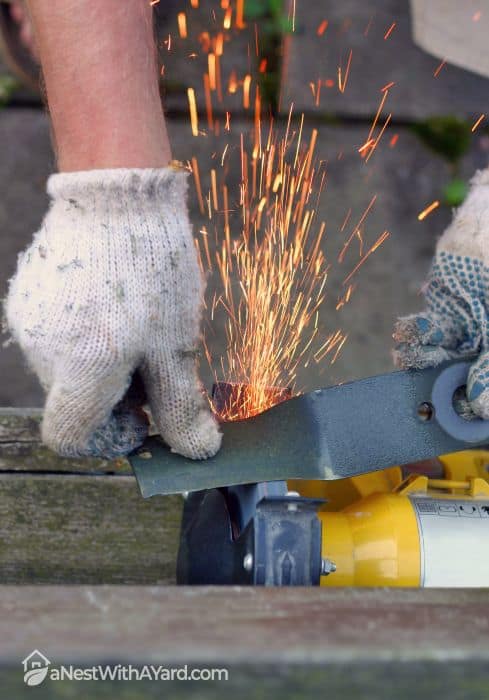
To cut grass into a fine mulch, you will need to sharpen the mower blades 2 to 3 times more often than you are used to. You will also need to replace mulching blades more frequently.
The reason why mower blades dull out quicker is that you have to go over your lawn multiple times to take off very little grass with each pass. That’s how you achieve the best mulch!
Let me remind you that mulching mowers have different blades. Click here to find out the difference between mulching and regular blades.
It Can Take Longer Than Bagging
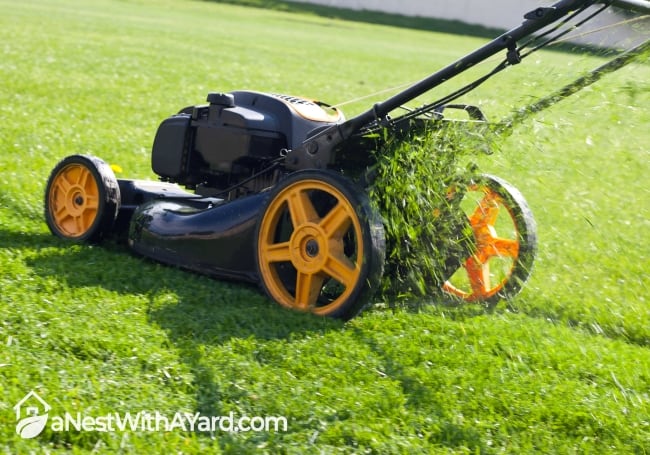
Mulching grass may take you longer than collecting grass clippings after mowing. That’s the harsh reality I quickly learned.
You will have to make multiple passes over the same area, taking only little by little off the top. This is the only way you will achieve a fine mulch that will decompose quickly and won’t suffocate your turf.
The best way to make mulching quicker and easier than bagging is to keep up with mowing and not let the grass blades grow out too tall.
Mulching Wet Grass Is Messy
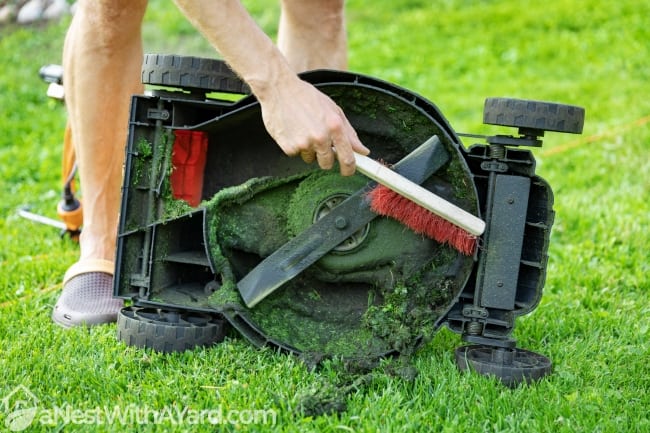
Let me tell you! Mulching wet grass is one big mess!
Wet clippings form clumps that are hard to distribute evenly across the lawn. On top of that, clumps of wet grass take longer to dry out and can start growing fungus. They also block out the sunlight, which can lead to the balding of the lawn.
I also find it hard to clean my mulching mower after dealing with wet grass. If you don’t clean clippings stuck under the deck immediately, they will lead to rusting. We all know that mulching mowers aren’t the cheapest!
It Can Cause Changes In Soil
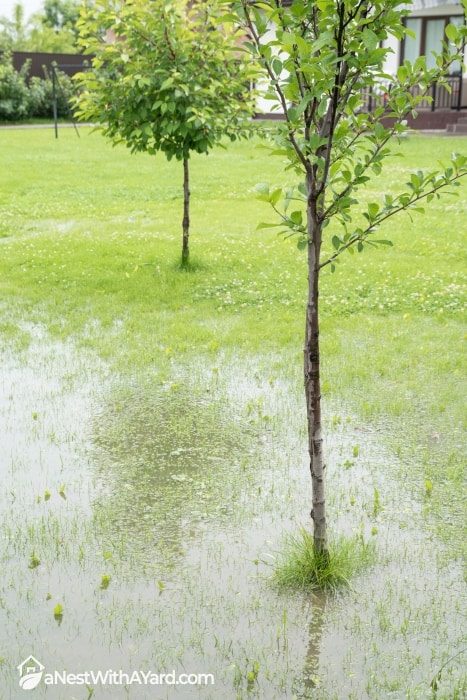
Mulching can change the nature of the soil if you don’t do it correctly. Leaving a thick layer of grass clippings on the lawn can lead to damp soil and the spread of fungal diseases.
On the opposite end, a thick blanket of grass clippings can dry out the ground, as well. This is a huge risk in the summer when there is little to no rain. Even when it rains, the clippings can absorb the water before it reaches the grassroots. Even with good irrigation, I still recommend you check whether the water has actually penetrated the soil.
You Will Need A Powerful Mower
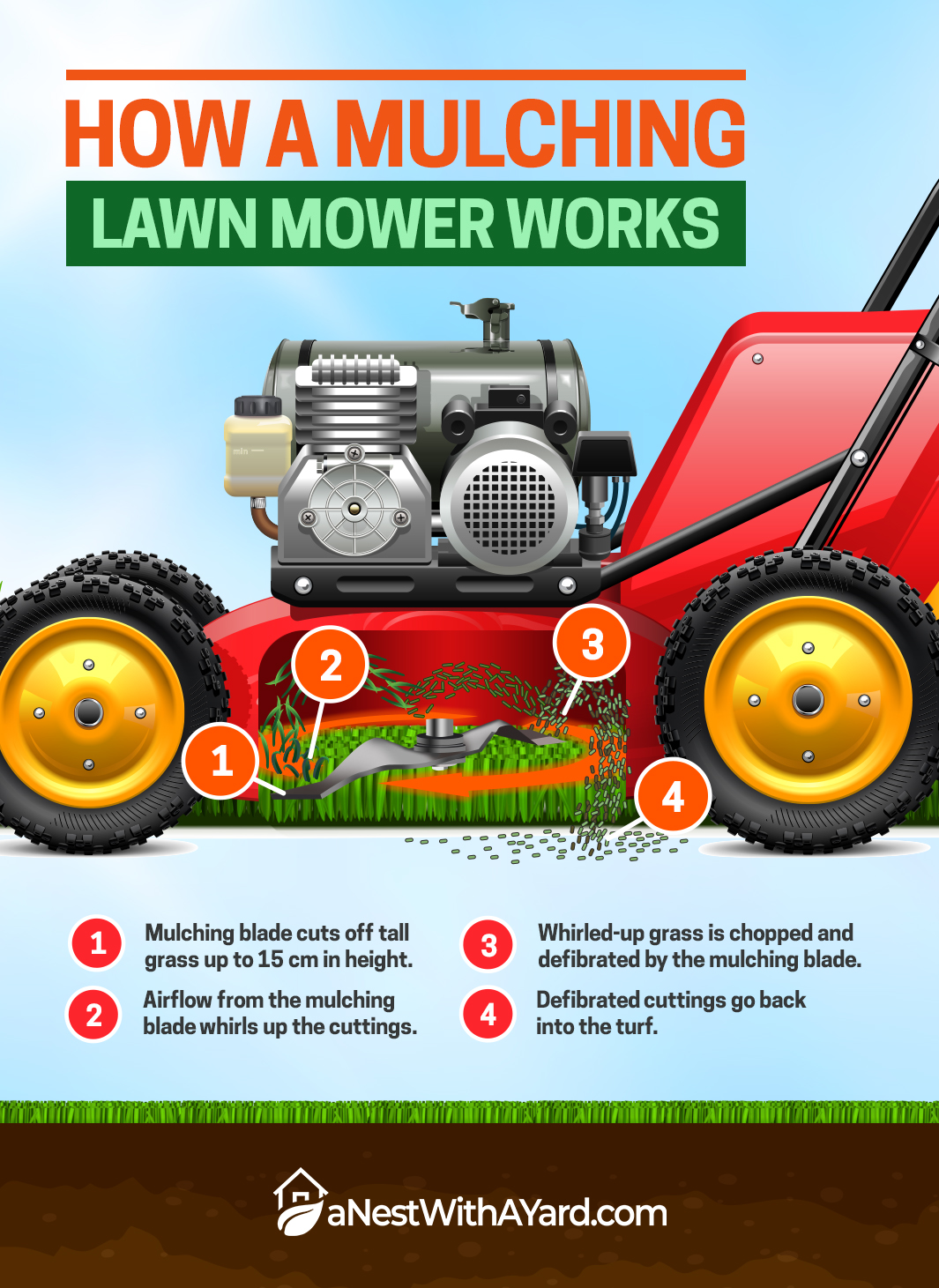
You may have to upgrade to a better lawn mower to make mulching efficient. Your lawn mower has to have a strong engine to finely chop the grass. An underpowered mower will only do more damage than good.
That’s why I suggest you switch from a regular mower to a mulching mower. Mulching mowers are specifically designed for the job. Yes, they are pricier but are well worth having.
It Can Lead To More Weeds
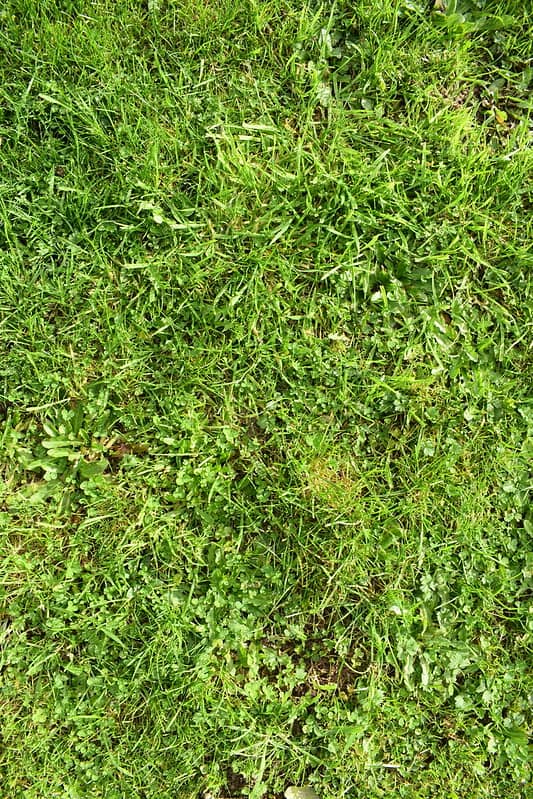
If your lawn has weeds, you may want to hold off on mulching until you solve the problem at hand. Here’s why I recommend you eradicate weeds first.
When mulching your grass, you will also be mulching stubborn weeds including crabgrass, dandelions, pigweed, and other common types. You will be spreading weed spores across the whole lawn, helping them take over the turf. Who wants to deal with that, am I right?
Using Fertilizer Could Become A Problem
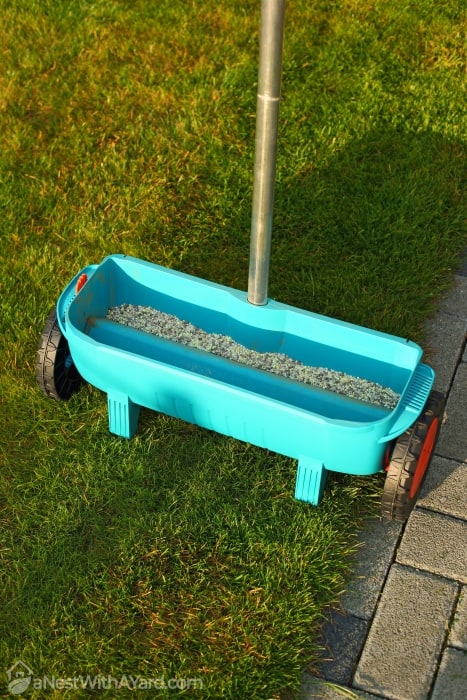
Grass mulching is a great way to reintroduce essential nutrients into the soil. Despite the benefits, some people still like to use store-bought fertilizers on top of it. I don’t suggest you use both methods at the same time. You could agitate and push your fertilizer with the mulching mower too close to the roots and blades and cause them to burn.
If you are worried about the nitrogen content in the ground, I suggest you mulch leaves into the lawn instead of using chemicals. Here’s how you do it!
FAQs
What are the disadvantages of mulching?
Disadvantages of mulching include suffocating your healthy lawn with too many grass clippings, inviting pests, the spread of fungal diseases, the infestation of weeds, drying of the soil, a messy-looking lawn, and the list goes on.
Is it OK to leave mulched grass on lawn?
It is OK to leave mulched grass on lawn if it is spread thinly and evenly across the surface. Too many grass clippings can suffocate your lawn by blocking out the sun and absorbing all the moisture.
Which is not a benefit of mulching?
A benefit of mulching is not the spread of fungal diseases due to grass cuttings being too soggy. Another con is the wilting of plants because of lack of sun and water. Let’s not forget that mulching mowers are more expensive, as well.
When should you not use mulch?
You should not use mulch in the early spring when the soil is starting to warm up. Using mulch in late fall is also not good. You should not mulch if you have invasive plants on your lawn. Bag grass clippings until you eradicate them.
Does mulching grass hurt lawn?
Mulching grass does not hurt lawn if you spread grass clippings in a thin layer, evenly across the surface. If it is done correctly, you will reintroduce vital nutrients into the soil. But, if you lay mulch too thick, you can suffocate your lawn.
You Should Still Try Out Grass Mulching
Are you surprised to hear about some of these disadvantages? I was too! Hopefully, this article doesn’t discourage you from trying out grass mulching. It can be very beneficial for your lawn if you do it correctly and avoid the same mistakes I made.
At the end of the day, you can always dump your mulched grass clippings on your compost pile and make use of them in your garden in other ways.
What do you think? Let me know in the comments below, and feel free to ask me any questions. I would love to hear from you.
